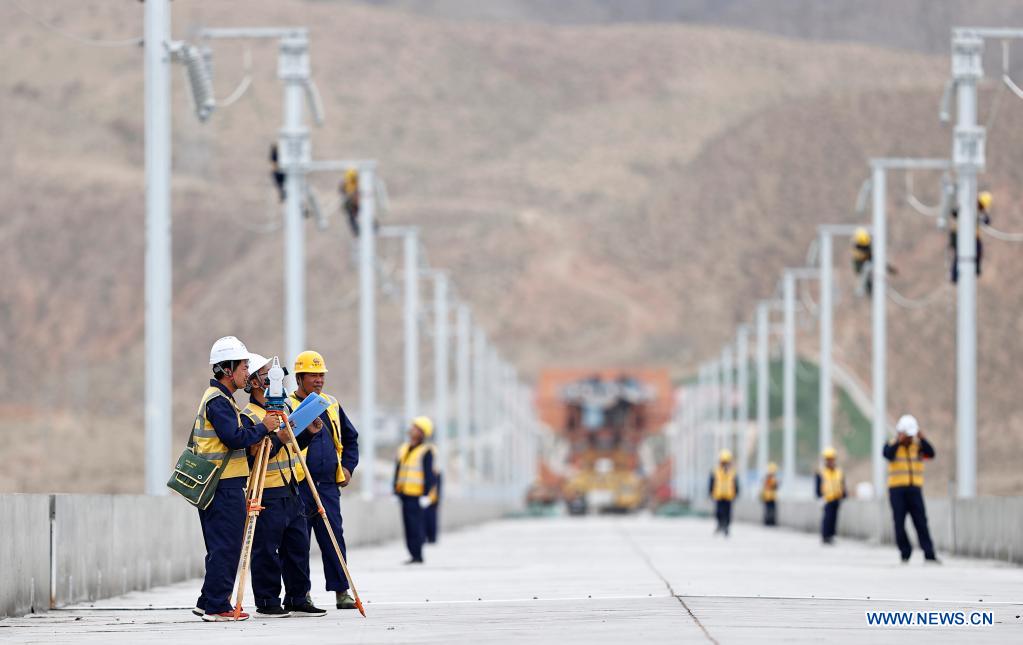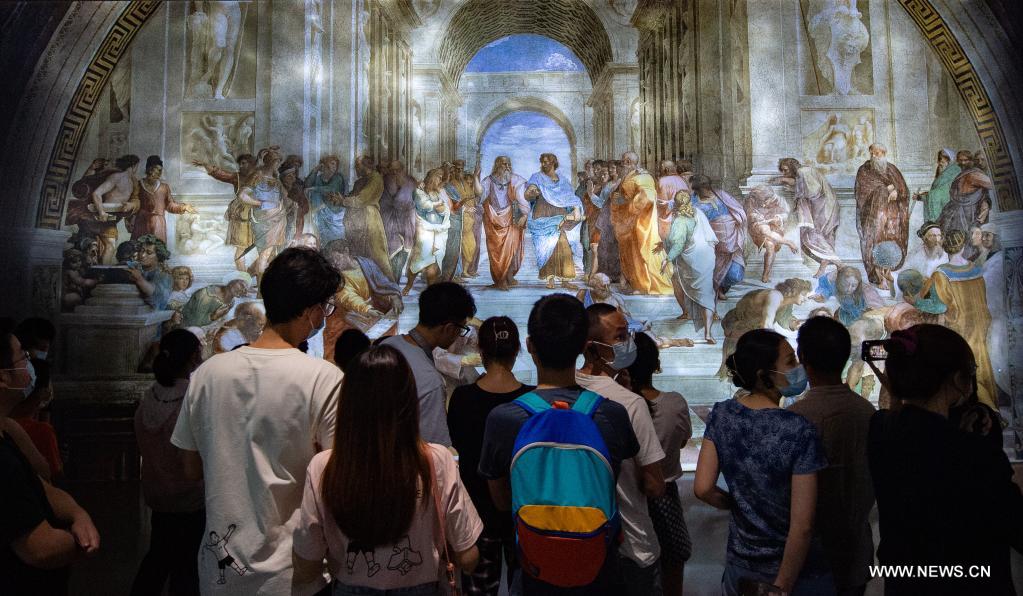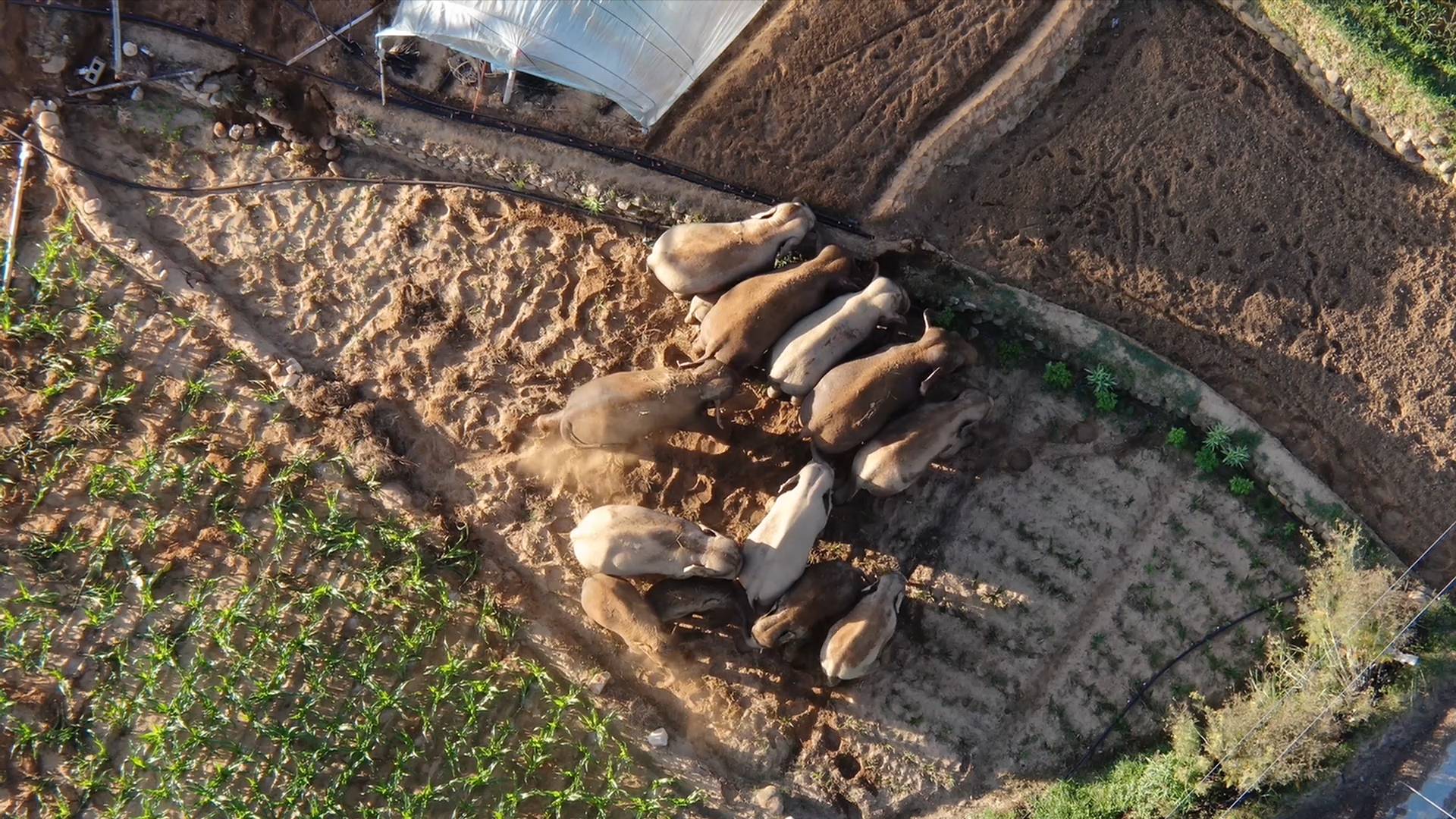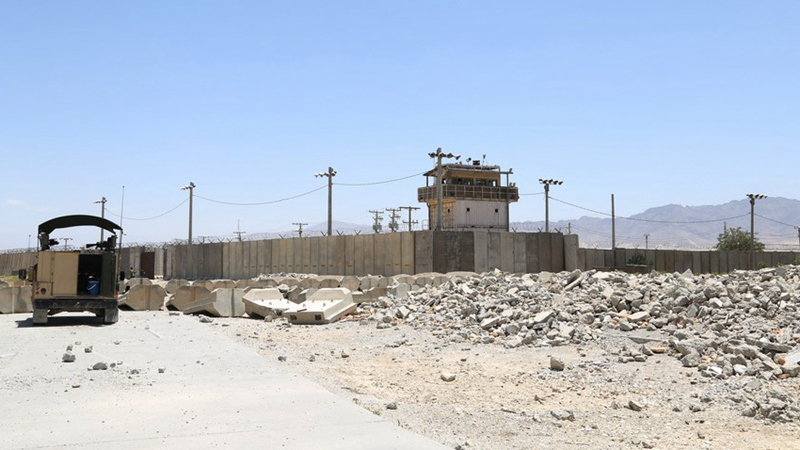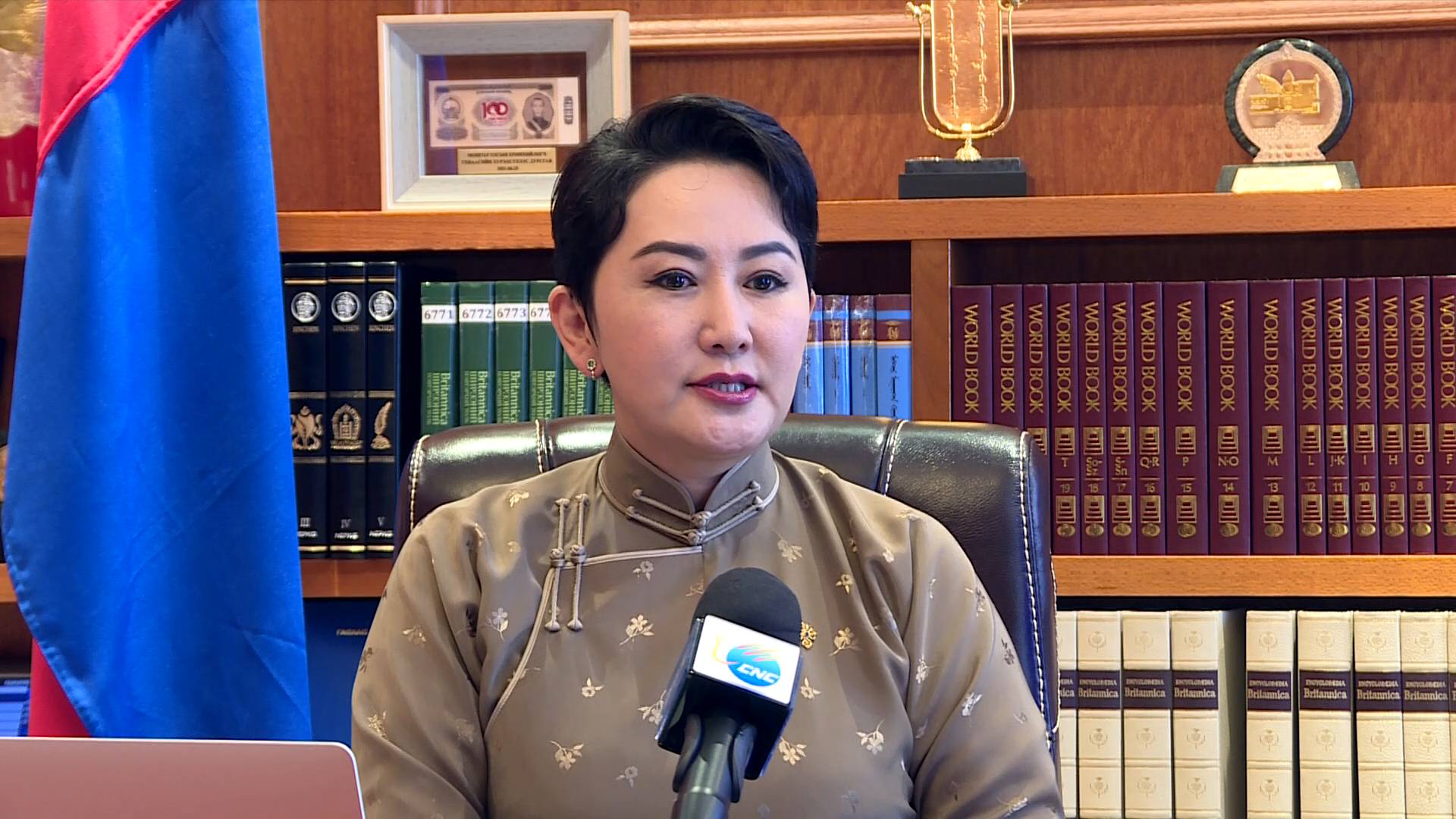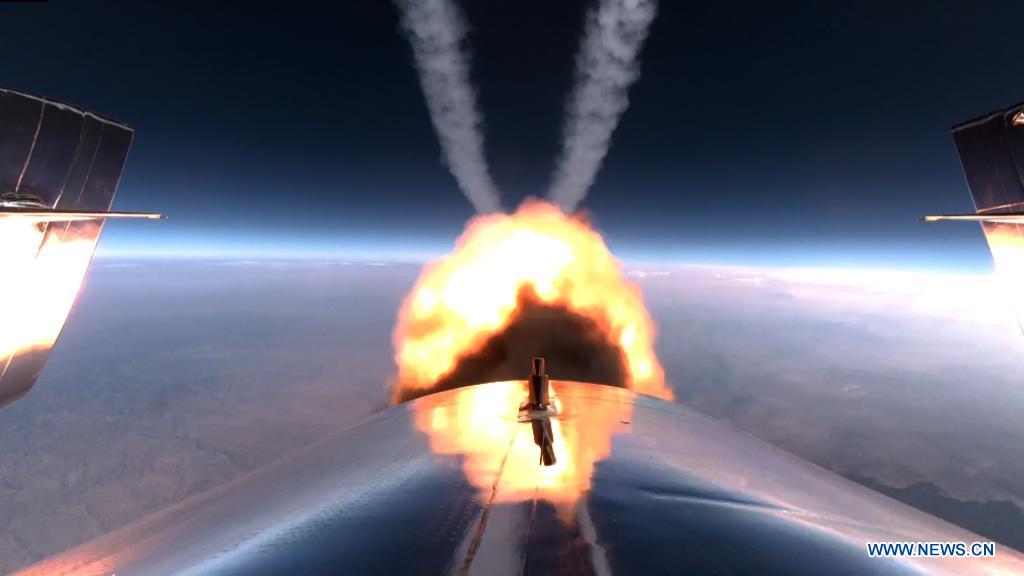
Photo released by Virgin Galactic on July 11, 2021 shows the company's spacecraft VSS Unity rocket motor burn on "Unity 22". Space tourism company Virgin Galactic completed its first fully crewed test flight of its spacecraft on Sunday, making a giant leap toward commercial suborbital spaceflight. The mission, dubbed "Unity 22," was the company's fourth crewed spaceflight, and the 22nd flight test for the company's spacecraft VSS Unity. The crew took off from the company's homeport of Spaceport America in U.S. state of New Mexico Sunday morning. (Virgin Galactic/Handout via Xinhua)
WASHINGTON, July 11 -- Space tourism company Virgin Galactic completed its first fully crewed test flight of its spacecraft on Sunday, making a giant leap toward commercial suborbital spaceflight.
The mission, dubbed "Unity 22," was the company's fourth crewed spaceflight, and the 22nd flight test for the company's spacecraft VSS Unity.
It was also the first to carry a full crew of two pilots and four mission specialists in the cabin, including founder of Virgin Galactic Richard Branson, who was testing the private astronaut experience.
The crew took off from the company's homeport of Spaceport America in U.S. state of New Mexico Sunday morning. The spacecraft, VSS Unity, achieved a speed of Mach 3 after being released from the mothership, VMS Eve, and reached space at an altitude of 53.5 miles.
One and a half hours after take-off, the spaceship touched down safely at Spaceport America.
The four mission specialists on board were Richard Branson; Beth Moses, chief astronaut instructor at Virgin Galactic; Colin Bennett, lead operations engineer at Virgin Galactic; Sirisha Bandla, vice president of government affairs and research operations at Virgin Galactic. The two pilots were Dave Mackay and Michael Masucci.
The "Unity 22" mission focused on cabin and customer experience objectives, including evaluating the commercial customer cabin with a full crew, demonstrating the conditions for conducting human-tended research experiments, and confirming the training program at Spaceport America supports the spaceflight experience, according to the company.
"I have dreamt about this moment since I was a child, but going to space was more magical than I ever imagined," Branson tweeted after the flight.
Following this flight, the team will complete inspections of the vehicles and an extensive data review. Two additional test flights are planned before the company expects to commence commercial service in 2022.
Virgin Galactic is not alone in trying to build space flight business. Blue Origin is also planning a manned flight to space on July 20 that will include its founder Jeff Bezos.
Unlike SpaceX or Blue Origin, which put passenger capsules atop vertically launched rockets, Virgin Galactic uses a custom carrier aircraft that totes its rocket-powered spaceplane to an elevation where it is released. Then the rocket plane's motor ignites and blasts its way toward space.

